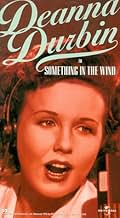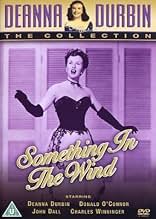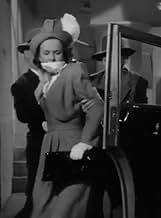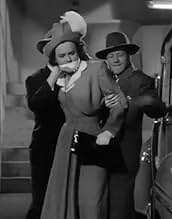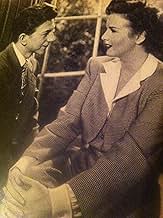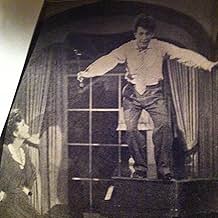Füge eine Handlung in deiner Sprache hinzuA grandson of a recently deceased millionaire mistakes a beautiful female disc jockey for her aunt, who once dated the grandfather.A grandson of a recently deceased millionaire mistakes a beautiful female disc jockey for her aunt, who once dated the grandfather.A grandson of a recently deceased millionaire mistakes a beautiful female disc jockey for her aunt, who once dated the grandfather.
The Williams Brothers
- Singing Quartet
- (as The Four Williams Brothers)
Jacqueline deWit
- Fashion Show Saleslady
- (as Jacqueline de Wit)
Patricia Alphin
- Fashion Show Model
- (Nicht genannt)
Polly Bailey
- Old Woman
- (Nicht genannt)
William Bailey
- Mr. Belton's Assistant
- (Nicht genannt)
Audrey Betz
- Women's Quartette Member
- (Nicht genannt)
Stanley Blystone
- TV Station Guard
- (Nicht genannt)
Betty Blythe
- Society Matron
- (Nicht genannt)
June Bright
- Fashion Show Model
- (Nicht genannt)
Ralph Brooks
- Radio Station Prompter
- (Nicht genannt)
Empfohlene Bewertungen
Most of the reviewers before mine here have nailed this film, with little difference in most ratings. It is really a bad plot with an even worse screenplay. That is for the story with the young Mary Collins getting kidnapped by the descendants of the wealthy Read patriarch who recently died. The comedy writers must have been on strike, because silly and dopey plots at times have been saved by at least some witty and funny dialog. But this film's script is dull as well as dumb.
It's too bad, because those were the days before Universal was a major studio, and it really did owe its survival to Deanna Durbin. As others have noted, had the studio provided quality scripts and roles for Durbin, she likely would not have walked away from Hollywood and a film career in her late 20s. And movie fans of the 20th century and beyond could have had some more memorable movies - perhaps musicals, to enjoy.
But, even as weak and poor as the plot was, this film didn't flop at the box office. Durbin considered it a dud, and while it wasn't a big hit, fans still turned out for the musical show. And that's truly what saves this film and even earns it a high mark from me - at 7, because of the very good song and dance numbers. Durbin sings several songs, including her hit tune, "Round 'n Round 'n Round" (the Turntable Song), and Donald O'Connor gives a dazzling performance of "I Love a Mystery." For as good as Durbin's singing is with popular music, the routine that helps put this film over just for its musical showcase is the duet she sings with Metropolitan Opera singer and star Jan Peerce - an aria from "Il Travatore."
I am one of those fans who enjoys the good and great musicals of the past. And, I too would like to have seen more films with Deanna Durbin. She not only had a superb voice, but she was a very good actress, especially in comedy. It's a stretch to rate this movie a 7 for the plot and screenplay overall, but the music and dance are exceptional for a musical revue film, and the stars are deserving at least.
Here are some lines that show the level of comedy in this goofy plot
Orchestra leader at the Fashion Show, after a fanfare, announces "And now for our new collection of evening gowns. These gowns are designed to ensure that large amounts of money change hands. The fainthearted are advised not to look."
Mary Collins, "Why, you old crook." Uncle Chester Read, "Heh, at your service, my dear."
Mary Collins, "Would you swindle your own flesh and blood?" Uncle Chester, "It's ever so more simple than swindling strangers."
It's too bad, because those were the days before Universal was a major studio, and it really did owe its survival to Deanna Durbin. As others have noted, had the studio provided quality scripts and roles for Durbin, she likely would not have walked away from Hollywood and a film career in her late 20s. And movie fans of the 20th century and beyond could have had some more memorable movies - perhaps musicals, to enjoy.
But, even as weak and poor as the plot was, this film didn't flop at the box office. Durbin considered it a dud, and while it wasn't a big hit, fans still turned out for the musical show. And that's truly what saves this film and even earns it a high mark from me - at 7, because of the very good song and dance numbers. Durbin sings several songs, including her hit tune, "Round 'n Round 'n Round" (the Turntable Song), and Donald O'Connor gives a dazzling performance of "I Love a Mystery." For as good as Durbin's singing is with popular music, the routine that helps put this film over just for its musical showcase is the duet she sings with Metropolitan Opera singer and star Jan Peerce - an aria from "Il Travatore."
I am one of those fans who enjoys the good and great musicals of the past. And, I too would like to have seen more films with Deanna Durbin. She not only had a superb voice, but she was a very good actress, especially in comedy. It's a stretch to rate this movie a 7 for the plot and screenplay overall, but the music and dance are exceptional for a musical revue film, and the stars are deserving at least.
Here are some lines that show the level of comedy in this goofy plot
Orchestra leader at the Fashion Show, after a fanfare, announces "And now for our new collection of evening gowns. These gowns are designed to ensure that large amounts of money change hands. The fainthearted are advised not to look."
Mary Collins, "Why, you old crook." Uncle Chester Read, "Heh, at your service, my dear."
Mary Collins, "Would you swindle your own flesh and blood?" Uncle Chester, "It's ever so more simple than swindling strangers."
Few I suspect at Universal Studios thought that Something In The Wind would be one of Deanna Durbin's last films. If they thought that they might have taken more care with her material.
Teaming Deanna with Donald O'Connor another one of their juvenile mainstays was probably inevitable. Both O'Connor and Deanna are served well by the songs obviously written both in mind. Deanna's Turntable Song sold a few records back in the day and O'Connor's I Love A Mystery song and routine are well suited to his talents. But the highlight is an aria from Il Trovatore that Durbin sings with Jan Peerce of the Metropolitan Opera playing an opera singing cop.
The plot is truly a silly one. Older brother John Dall comes marching into Deanna's radio studio all full of himself demanding that she cease and desist demands for payments that his grandfather has been paying regularly to her. In fact grandfather was making payments to Durbin's aunt Jean Adair and a cursory examination of the records would show that the payments started before Durbin was born. But no one said Dall was too bright.
In any event this stupid error becomes the basis for the rest of the film causing complications for Dall, Durbin and O'Connor playing Dall's younger brother. Dall also has a fiancé played by Helena Carter who takes a dim view of it all as does his grandmother Margaret Wycherly.
Others besides Durbin and O'Connor fans might like Something In The Wind. But both have done better work than this.
Teaming Deanna with Donald O'Connor another one of their juvenile mainstays was probably inevitable. Both O'Connor and Deanna are served well by the songs obviously written both in mind. Deanna's Turntable Song sold a few records back in the day and O'Connor's I Love A Mystery song and routine are well suited to his talents. But the highlight is an aria from Il Trovatore that Durbin sings with Jan Peerce of the Metropolitan Opera playing an opera singing cop.
The plot is truly a silly one. Older brother John Dall comes marching into Deanna's radio studio all full of himself demanding that she cease and desist demands for payments that his grandfather has been paying regularly to her. In fact grandfather was making payments to Durbin's aunt Jean Adair and a cursory examination of the records would show that the payments started before Durbin was born. But no one said Dall was too bright.
In any event this stupid error becomes the basis for the rest of the film causing complications for Dall, Durbin and O'Connor playing Dall's younger brother. Dall also has a fiancé played by Helena Carter who takes a dim view of it all as does his grandmother Margaret Wycherly.
Others besides Durbin and O'Connor fans might like Something In The Wind. But both have done better work than this.
Those who know DD from her "little Miss fixit" movies of the 1930s will be very surprised by this film. She is now an adult, styled very much to look like an even more attractive Gale Storm, and she turns out to be both a very fine actress in romantic comedy and, low and behold, one very sexy singer. Her performance of "Thank you Daddy" is right up there with Rita Hayworth's classic Gilda performance. Frankly, she is far more interesting in this movie, at least to an adult male, than she was in those cute 1930s movies.
Donald O'Conner is also VERY good in this movie. "I love a mystery" is, indeed, a harbinger of what he will do, that much better, in Singing in the Rain. It's not at that level, but it's very good.
The character actors and actresses all deliver fine performances.
And Jan Peerce as the jail keep is not to be missed. I grew up on his recordings, when he and Tucker were the two great American tenors. Believe me folks, he was indeed great, the equal of any of his European contemporaries. He does the "Miserere" with DD here, and it's good. Interestingly, she does not take the alternate high note in the last repeat, as was customary in those days and as Kitty Carlile (sp?) does in A Night at the Opera (and Rosa Ponselle does in her recording with Caruso). It's great to have a chance to see Peerce again "live."
The weak elements here are the male romantic lead, as noted by other reviewers, who is a dud, and the music. If this had had a score as memorable as some of Judy Garland's movies of the same era, it would be as memorable as those. DD does a remarkable job with what she's given, but in terms of music, she isn't given much.
I like the teenage DD movies. They're fun. But this shows that DD was better as an adult than as a child star, and that's staying a lot.
------------------------------
I watched this again tonight, and really enjoyed it. Durbin really is more interesting as an adult than as a child star. And she really does a bang-up job of "Thank you Daddy." On second viewing, it's less Rita Hayworth in Gilda than Mary Martin in one of her "My Heart Belongs to Daddy" numbers.
The things that keep this from being a great movie have been pointed out by others: the script is weak, the music, though it several times comes close to being memorable, never really is; and the leading man has no chemistry at all. Durbin does a great job with mediocre material, as does O'Connor, but that won't make a silk purse out of a piglet's ear.
Donald O'Conner is also VERY good in this movie. "I love a mystery" is, indeed, a harbinger of what he will do, that much better, in Singing in the Rain. It's not at that level, but it's very good.
The character actors and actresses all deliver fine performances.
And Jan Peerce as the jail keep is not to be missed. I grew up on his recordings, when he and Tucker were the two great American tenors. Believe me folks, he was indeed great, the equal of any of his European contemporaries. He does the "Miserere" with DD here, and it's good. Interestingly, she does not take the alternate high note in the last repeat, as was customary in those days and as Kitty Carlile (sp?) does in A Night at the Opera (and Rosa Ponselle does in her recording with Caruso). It's great to have a chance to see Peerce again "live."
The weak elements here are the male romantic lead, as noted by other reviewers, who is a dud, and the music. If this had had a score as memorable as some of Judy Garland's movies of the same era, it would be as memorable as those. DD does a remarkable job with what she's given, but in terms of music, she isn't given much.
I like the teenage DD movies. They're fun. But this shows that DD was better as an adult than as a child star, and that's staying a lot.
------------------------------
I watched this again tonight, and really enjoyed it. Durbin really is more interesting as an adult than as a child star. And she really does a bang-up job of "Thank you Daddy." On second viewing, it's less Rita Hayworth in Gilda than Mary Martin in one of her "My Heart Belongs to Daddy" numbers.
The things that keep this from being a great movie have been pointed out by others: the script is weak, the music, though it several times comes close to being memorable, never really is; and the leading man has no chemistry at all. Durbin does a great job with mediocre material, as does O'Connor, but that won't make a silk purse out of a piglet's ear.
Deanna Durbin was at the peak of her vocal abilities on screen by the time she made SOMETHING IN THE WIND and fortunately she has some pleasant and frequent musical interludes sprinkled throughout what is essentially a feeble plot.
She's once again up to her neck in a plot relying heavily on mistaken identity and pretending to be someone she's not. Her leading men are Donald O'Connor and John Dall, the latter being her love interest in a somewhat wooden performance. O'Connor tends to over exert himself in some rambunctious musical numbers while Deanna not only sings some lively numbers but also joins Jan Peerce, tenor of the Metropolitan Opera, for an operatic aria.
Obviously the film was designed to give Deanna a new and more glamorous look and wardrobe and some popular melodies to sing rather than the usual operatic or semi-classical numbers. Unfortunately, the plot is no more adult than her "little Miss Fix-it" fluff earlier in her career. But she looks wonderful and is in extremely good voice for all of her vocals. A pleasant and diverting experience for true Deanna Durbin fans.
She's once again up to her neck in a plot relying heavily on mistaken identity and pretending to be someone she's not. Her leading men are Donald O'Connor and John Dall, the latter being her love interest in a somewhat wooden performance. O'Connor tends to over exert himself in some rambunctious musical numbers while Deanna not only sings some lively numbers but also joins Jan Peerce, tenor of the Metropolitan Opera, for an operatic aria.
Obviously the film was designed to give Deanna a new and more glamorous look and wardrobe and some popular melodies to sing rather than the usual operatic or semi-classical numbers. Unfortunately, the plot is no more adult than her "little Miss Fix-it" fluff earlier in her career. But she looks wonderful and is in extremely good voice for all of her vocals. A pleasant and diverting experience for true Deanna Durbin fans.
SOMETHING IN THE WIND (Universal-International, 1947), directed by Irving Pichel, is not a disaster hurricane or tornado movie, but a light-hearted musical-comedy starring the once-popular Deanna Durbin in one of her final film roles before closing her chapter in movie making by 1948. Considering a handful of "Wind" movie titles, consisting of THE WIND (1928), WOMEN IN THE WIND (1939), REAP THE WILD WIND (1942), VOICE IN THE WIND (1944), and the most famous wind of all, GONE WITH THE WIND (1939), SOMETHING IN THE WIND is simply a song title tagged to an ordinary story quite common during the screwball genre of the 1930s. Following weak comedy attempts of BECAUSE OF HIM (1946) and I'LL BE YOURS (1947), Durbin's latest installment is actually one of her better efforts, especially with the assistance Donald O'Connor.
Abandoning her shoulder-length hairstyle for a more mature 1940s style appearance, Deanna Durbin plays Mary Collins, a singing disc-jockey for WFOB Radio Station. After finishing her daily program, Mary is approached by the angry and upset Donald Read (John Dall), a rich, stuck-up snob identifying himself as grandson to the late Henry Read. Unaware of his purpose, she finds he wants her to sign a cash settlement to cease any further financial means she's been receiving for many years. Accused of being this old man's mistress, Mary, not liking this young man's tactics, storms out of the station. Once home where she lives with her Aunt Mary (Jean Adair), Mary soon learns it's her aunt, who, many years ago, had worked as governess for the Reads where she met and fell in love with Henry. Because the Read family disapproved of their relationship due to social standings, the engagement was broken, with Henry marrying another. Because of his engagement to socialite, Clarissa Prentice (Helena Carter), and hoping to avoid any scandal connected with the family name, Donald gets Charlie (Donald O'Connor), his third cousin, to go to the radio station and abduct Mary. Once inside the Read estate, Mary, knowing the situation to be mistaken identity, is unable to convince other family members, consisting of Grandma Read (Margaret Wycherly) and Uncle Chester (Charles Winninger) she's not the Mary Collins in question, decides to go on with her masquerade and accept the payoff settlement of a million dollars to support her and Henry's "child." As Mary and Donald plot against each other, one of the family members discovers Mary's deception and plots against her.
With Music and Lyrics by Johnny Green and Leo Robin, the motion picture soundtrack is as follows: "The Turntable Song," "Happy-Go-Lucky and Free" (both sung by Deanna Durbin); "I Love a Mystery" (sung and performed by Donald O'Connor); "Don't You, Daddy?" (sung by Durbin during fashion show); "The Turntable Song" (sung by The Four Williams Brothers and Donald O'Connor); "Something in the Wind," "It's Only Love" (both sung by Durbin); "Miserere" from Guiseppe Verdi's IL TROVADORE (sung and performed by Durbin and Jan Peerce, Star of the Metropolitan Opera Company); "Happy-Go-Lucky and Free" and "Something in the Wind" (reprises). Though the songs are forgettable, they're agreeably pleasant. Aside from Durbin's singing, Donald O'Connor highlights with his "I Love a Mystery" number, a somewhat forerunner to his antics to "Make 'Em Laugh" from "Singin' in the Rain" (MGM, 1952), which displays his ability in bot showmanship and comedy. Opera singer Jan Peerce, in a rare screen appearance, cast as a policeman, provides some fine moments singing opposite Durbin in jail. Other cast members include: Jacqueline De Wit (The Saleslady); William Ching (Master of Ceremonies); Chester Clute, Hal K. Dawson, Frank Wilcox, among others.
A couple interesting aspects about SOMETHING IN THE WIND is a look back at early television production provided towards the film's end, and the casting of dramatic actor, John Dall. Dall, on loan from Warner Brothers, best known for his rare screen work of THE CORN IS GREEN (1945), ROPE (1948) and GUN CRAZY (United Artists, 1949), seems uncomfortable in his role, especially when comedy is concerned. A loan-out from MGM's Peter Lawford might have been sufficient, but Dall does his best to make his character believable.
Scarcely shown on television, especially public television where it was commonly shown in the 1980s, SOMETHING IN THE WIND is pleasant, breezy89 minute entertainment, even without the wind. Distributed to home video in 1998, it's currently available on DVD with Durbin's feature film debut, THREE SMART GIRLS (1936), also featuring Charles Winninger, on its flip side. (***)
Abandoning her shoulder-length hairstyle for a more mature 1940s style appearance, Deanna Durbin plays Mary Collins, a singing disc-jockey for WFOB Radio Station. After finishing her daily program, Mary is approached by the angry and upset Donald Read (John Dall), a rich, stuck-up snob identifying himself as grandson to the late Henry Read. Unaware of his purpose, she finds he wants her to sign a cash settlement to cease any further financial means she's been receiving for many years. Accused of being this old man's mistress, Mary, not liking this young man's tactics, storms out of the station. Once home where she lives with her Aunt Mary (Jean Adair), Mary soon learns it's her aunt, who, many years ago, had worked as governess for the Reads where she met and fell in love with Henry. Because the Read family disapproved of their relationship due to social standings, the engagement was broken, with Henry marrying another. Because of his engagement to socialite, Clarissa Prentice (Helena Carter), and hoping to avoid any scandal connected with the family name, Donald gets Charlie (Donald O'Connor), his third cousin, to go to the radio station and abduct Mary. Once inside the Read estate, Mary, knowing the situation to be mistaken identity, is unable to convince other family members, consisting of Grandma Read (Margaret Wycherly) and Uncle Chester (Charles Winninger) she's not the Mary Collins in question, decides to go on with her masquerade and accept the payoff settlement of a million dollars to support her and Henry's "child." As Mary and Donald plot against each other, one of the family members discovers Mary's deception and plots against her.
With Music and Lyrics by Johnny Green and Leo Robin, the motion picture soundtrack is as follows: "The Turntable Song," "Happy-Go-Lucky and Free" (both sung by Deanna Durbin); "I Love a Mystery" (sung and performed by Donald O'Connor); "Don't You, Daddy?" (sung by Durbin during fashion show); "The Turntable Song" (sung by The Four Williams Brothers and Donald O'Connor); "Something in the Wind," "It's Only Love" (both sung by Durbin); "Miserere" from Guiseppe Verdi's IL TROVADORE (sung and performed by Durbin and Jan Peerce, Star of the Metropolitan Opera Company); "Happy-Go-Lucky and Free" and "Something in the Wind" (reprises). Though the songs are forgettable, they're agreeably pleasant. Aside from Durbin's singing, Donald O'Connor highlights with his "I Love a Mystery" number, a somewhat forerunner to his antics to "Make 'Em Laugh" from "Singin' in the Rain" (MGM, 1952), which displays his ability in bot showmanship and comedy. Opera singer Jan Peerce, in a rare screen appearance, cast as a policeman, provides some fine moments singing opposite Durbin in jail. Other cast members include: Jacqueline De Wit (The Saleslady); William Ching (Master of Ceremonies); Chester Clute, Hal K. Dawson, Frank Wilcox, among others.
A couple interesting aspects about SOMETHING IN THE WIND is a look back at early television production provided towards the film's end, and the casting of dramatic actor, John Dall. Dall, on loan from Warner Brothers, best known for his rare screen work of THE CORN IS GREEN (1945), ROPE (1948) and GUN CRAZY (United Artists, 1949), seems uncomfortable in his role, especially when comedy is concerned. A loan-out from MGM's Peter Lawford might have been sufficient, but Dall does his best to make his character believable.
Scarcely shown on television, especially public television where it was commonly shown in the 1980s, SOMETHING IN THE WIND is pleasant, breezy89 minute entertainment, even without the wind. Distributed to home video in 1998, it's currently available on DVD with Durbin's feature film debut, THREE SMART GIRLS (1936), also featuring Charles Winninger, on its flip side. (***)
Wusstest du schon
- WissenswertesDonald O'Connor's first movie after returning from service in World War II.
- Zitate
Orchestra Leader at Fashion Show: And now for our new collection of evening gowns. These gowns are designed to ensure that large amounts of money change hands. The fainthearted are advised not to look.
Top-Auswahl
Melde dich zum Bewerten an und greife auf die Watchlist für personalisierte Empfehlungen zu.
- How long is Something in the Wind?Powered by Alexa
Details
- Erscheinungsdatum
- Herkunftsland
- Sprache
- Auch bekannt als
- For the Love of Mary
- Drehorte
- Produktionsfirma
- Weitere beteiligte Unternehmen bei IMDbPro anzeigen
- Laufzeit
- 1 Std. 34 Min.(94 min)
- Farbe
- Seitenverhältnis
- 1.37 : 1
Zu dieser Seite beitragen
Bearbeitung vorschlagen oder fehlenden Inhalt hinzufügen

